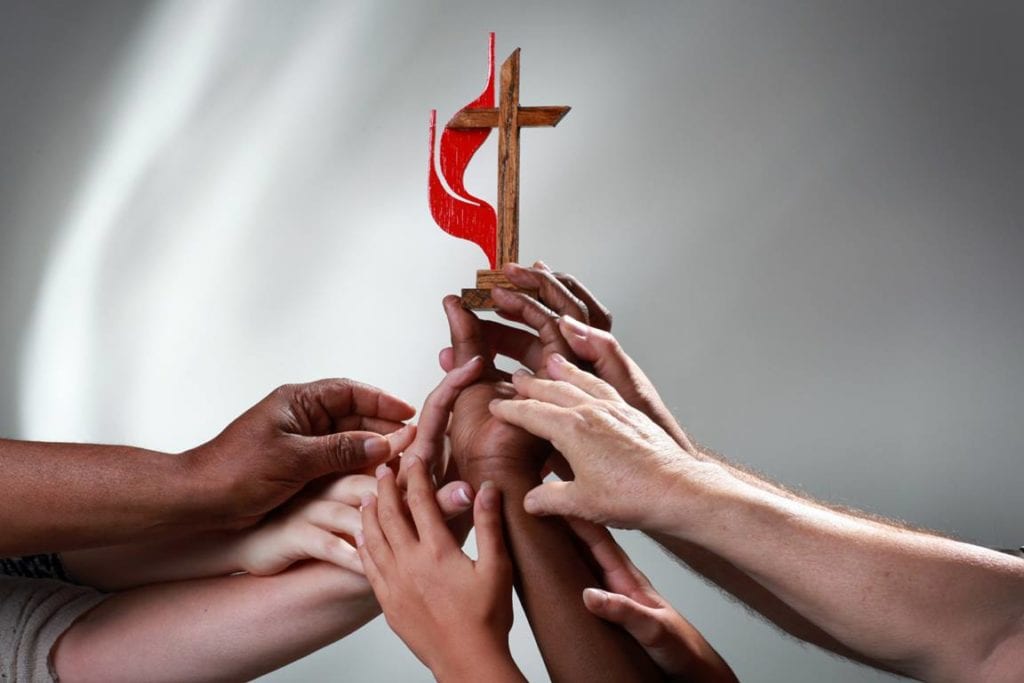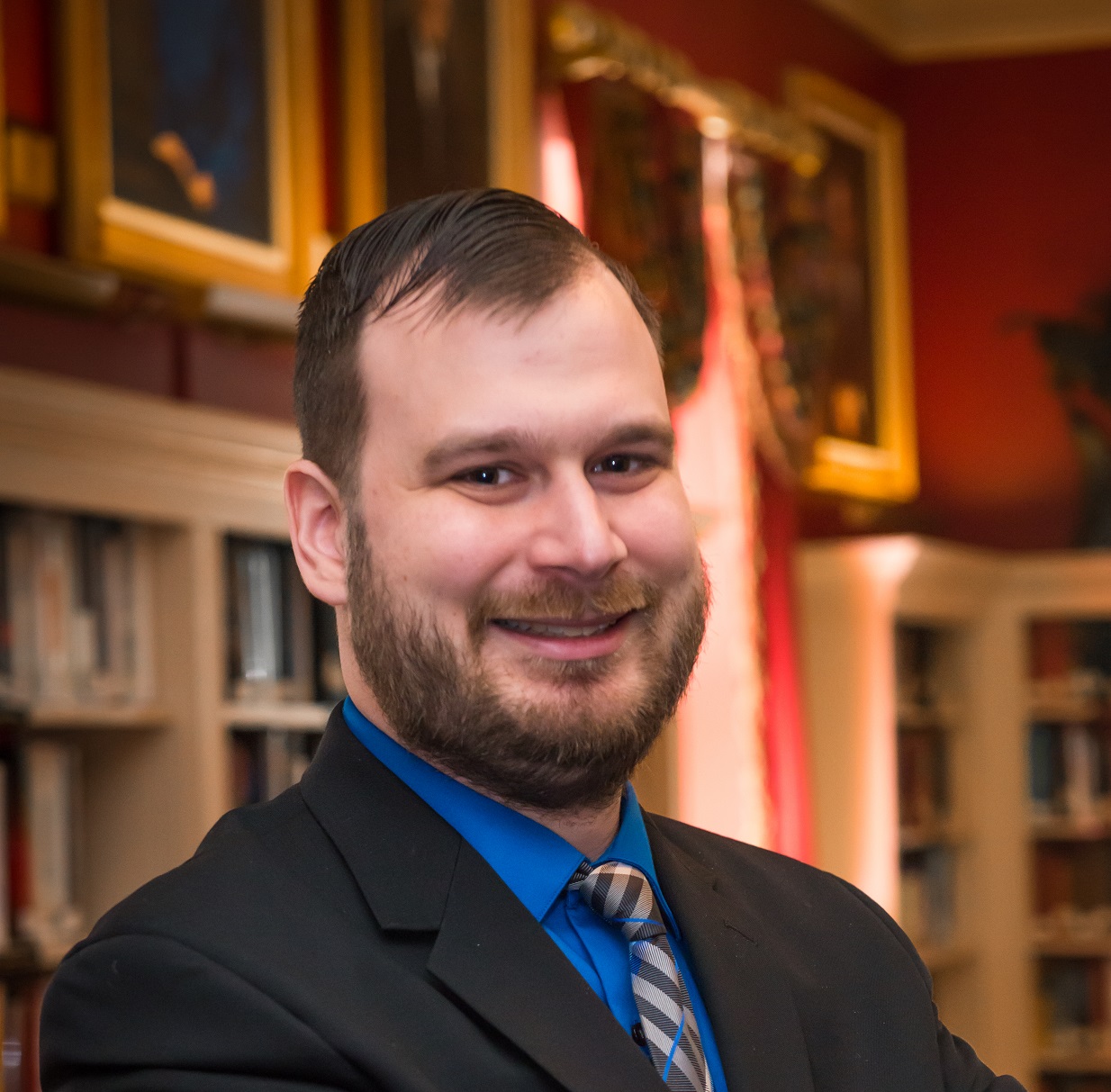The following statement has been unanimously endorsed by the United Methodist Action (UMAction) Steering Committee of the Institute on Religion and Democracy (IRD), which consists of concerned United Methodist pastors and laity from 14 annual conferences.
Click below to see pdf versions of this statement in
UMACTION STATEMENT ON OUR GLOBAL CHURCH
AND THE FUTURE OF METHODISM
We at UMAction remain committed to working for a renewed, biblically faithful, Methodist church, humbly submitted to the lordship of Jesus Christ. We remain committed to honoring Christ in every step of the way towards that goal, even as the details of the next steps are still being determined. We look forward with hope and joy to the future for theologically orthodox United Methodists, of a spiritually renewed denomination that is fully global, as a foreshadowing of Jesus Christ’s ingathering of disciples from all nations in a New Jerusalem adorned as His bride.
We at UMAction are committed to doing what we can to ensure a strong level of support and funding for faithful ministries outside of the United States and to making denominational leadership much more inclusive and respectful of representative leaders from outside the USA. We note our own track record of enacting reforms requiring greater inclusion of Africans in denominational leadership and doubling funding for theological education in the central conferences, sometimes working to overcome opposition from liberal American leaders to do so. Much work remains to be done, and we look forward to helping create a more interconnected and truly representative global, multicultural church in which power is shared equitably.
We have now come to believe that the most realistic context for realizing our core values of faithfulness to biblical teaching, our Wesleyan heritage, and genuine, non-paternalistic inclusion of non-American brothers and sisters is ultimately in the reconstituted denomination for theologically traditionalist United Methodists that we expect to emerge from a negotiated denominational separation. This has not been our preferred solution. Contrary to some misinformation, as theologically conservative, evangelical United Methodists, we were absolutely not “planning to leave the denomination anyway.” We have worked for many years to renew and reform the denomination as a whole. In light of recent developments, however, we now seek a fair separation agreement, in which conferences and congregations are allowed to make free, timely, and fully informed choices, without concern for loss of property, as preferable to continuing our denomination’s internal conflicts. But it is absolutely essential that strong steps be taken to keep such processes free from any manipulation, misinformation, cheating, or coercion.
In all discussions of financial settlements and division of assets in any separation, we want to make clear that our absolute primary concern, by far, is protecting continued funding for faithful ministries in conferences outside of the United States. We believe it will remain the sacred responsibility of Americans within a reconstituted traditionalist Methodist denomination to continue strongly financially supporting vital ministries of our global brothers and sisters, and that those around the world who share a foundation of biblical, Wesleyan faith will always have much to gain and learn from continued missional connection to each other. Together, may we all support and listen to each other in the body of Christ – while moving beyond the paternalism and colonialism that has characterized too much of American United Methodism’s relationships with brothers and sisters in other nations.
We at UMAction mourn the factors that have forced our denomination to this point of separation. We lament that too many American bishops have refused to respect the global nature of the United Methodist Church by promoting disobedience to the decisions of our global General Conferences, and have undermined the faith by teaching against our church’s own official, historic, constitutionally protected Doctrinal Standards. Prominent examples of the latter from liberal bishops include denying Christ’s miraculous conception and physical resurrection or claiming that Jesus had such sins as “his bigotries and prejudices.”
UMAction is committed to working for a faithful denomination in which “unity in theological diversity” is no longer stretched to the extreme of supporting bishops in spreading such false teachings. We look forward with hope to a church which has effective accountability for its leaders, and unashamedly upholds biblical truth, including the teaching that God created marriage as a sacred covenant for one man and one woman. We desire a disciple-making church which compassionately invites all people into a saving, transforming relationship with Jesus Christ.
To our faithful brothers and sisters in Africa, Europe, and Asia, we are deeply saddened by liberal American caucuses’ and leaders’ mistreatment of you, and by the departures of much of our denomination from the life-sacrifices of our early missionaries. The nasty rhetoric directed against many of you, the suggestions that Americans’ greater wealth should give their voices greater weight, the threats and actions by liberal Americans to defund faithful United Methodists’ ministries as punishment for their belief in biblical standards on marriage and sex, and the recently renewed liberal efforts to bring back repeatedly rejected so-called “Global Segregation Plans” are all very regrettable.
On the last point, no amount of misleading propaganda can change the fact that such proposals to create a new U.S.-only structure with little to no non-American input do not help non-Americans. Instead, they seek to preserve liberal American power (on issues that include, but are not at all limited to, sexual morality) and impose drastic new limits on the influence of non-Americans in our denomination. While we recognize that there are diverse views among United Methodists in every region, we note that African United Methodists spoke clearly in 2009 when, according to the United Methodist News service, “voters from the central conferences in Africa were the strongest opponents” of proposed constitutional amendments to advance this same basic framework of global segregation, with some 95 percent of African annual conference members voting NO. This was one of many times in which our global church was blessed by hearing a strong witness from United Methodists outside of the United States. We lament how many in our denominational hierarchy seem to treat non-American United Methodists as a problem to be controlled rather than as brothers and sisters to be loved and respected as equals.
If an acceptable separation agreement cannot be reached at the next General Conference, then UMAction remains prepared to work to enact and implement the necessary loophole-closing accountability reforms, including but not limited to adopting portions of the Traditional Plan not enacted at the 2019 General Conference, to stop the harm being inflicted by the unfaithful, covenant-breaking actions of too many.
All of these values, commitments, hopes, and laments are compelled by our deep love for our holy, triune God and for the people of our United Methodist Church.






Comment by Gary Bebop on September 29, 2020 at 12:22 pm
They are already shooting at this from behind a duck blind. Don’t let that discourage you, John. Keep writing about the transformation that’s coming. We are tuned in.
Comment by John Smith on October 3, 2020 at 7:39 am
Nothing really new here, the big question is what is the details of the expected replacement. The standard answer is: We can’t say until … Yet it is expected that this new denomination will receive a large portion of the old denominations funds.
Comment by David Christie on October 3, 2020 at 8:19 am
Just out of curiosity, why are the Traditionalists being forced out of the denomination to start a “new” denomination? My apologies if I have this wrong. Shouldn’t those who deny the basic teachings of the faith and work to tear down our church body be the ones to leave? And why should the Traditionalists be required to support the radicals? They are the ones who want the changes, let them pay for it, and build it up from the ground up like the Wesley brothers did (with God’s grace). The radicals are wanting all the cake and eat it too. Life doesn’t work that way. Either they believe they are right and God will give favor or they don’t believe in the Biblical God and expect to be coddled. The fact that the Traditionalists aren’t pushing back on this says they aren’t really standing up for God either. The radicals need to be given a deadline to leave their positions voluntarily or they will be excused. it’s up to them at that point to either change their ways and live by the Bible and the Book of Discipline or go find the path that is to their liking. Is the brokered split like I have heard about really the way God would handle this?
Comment by Michael McInnis on October 7, 2020 at 11:37 am
I fully endorse this statement. It accurately defines where we are, and where we need to go into a faithful, fruitful future as the church.